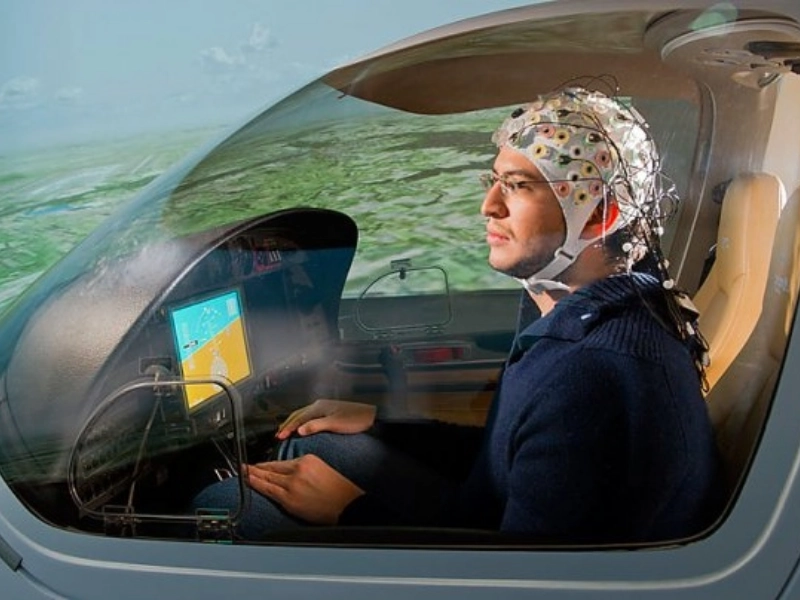Transport Of The Future: Top 10 Ideas

5. A mind-controlled aircraft.
For those who prefer not to be passive passengers, the concept of a mind-controlled aircraft offers an exciting new frontier in aviation. The European Union has recognized the potential of this innovative technology and has decided to fund the BrainFlight Aeroproject, which aims to develop a system that allows pilots to control aircraft using their thoughts.
This groundbreaking approach involves advanced neurotechnology that interprets brain signals, enabling pilots to mentally direct the aircraft to maneuver left, right, or execute other flight commands. By harnessing the power of brain-computer interfaces, pilots could experience a more intuitive and immersive flying experience, enhancing their ability to respond to dynamic flight conditions.
The implications of mind-controlled aviation extend beyond personal convenience. This technology could significantly improve accessibility for individuals with physical disabilities, allowing them to operate aircraft with ease. Additionally, it could enhance safety by reducing reaction times and enabling more precise control during critical flight situations.
As research and development progress, the dream of flying through mental command may soon become a reality, transforming the way we think about piloting and aviation.
In conclusion, the BrainFlight Aeroproject represents a revolutionary leap forward in aviation technology. By enabling pilots to control aircraft with their minds, we are not only redefining the flying experience but also paving the way for greater accessibility and safety in the skies. The future of flight is poised to be as much about mental prowess as it is about traditional piloting skills.
















